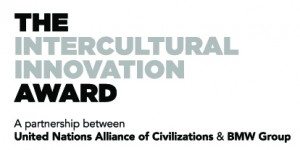Authenticity and identity are becoming much more important to young Australians.Elisha was born in Australia in what she identifies as both a ‘white’ and ‘coloured’ culture. As she aged she began to notice divisions and disadvantage as well as judgements placed on coloured people. When Elisha went to university she founded an anti-racism group, established to assist those affected by racism at university and to set good practices for the workforce. The Student Representative Council had informed her that most groups receive affiliation within a few months. Yet her anti-racism group was never affiliated. Elisha feels this is because of a lack of senior role models and support from the student guild.
“It makes me feel annoyed that people feel they can’t be accepted for who they are. It doesn’t feel fair”.
Elisha believes her group fell victim to University bureaucracy as well as strategic neglect. She believes the student guild allowed the group to fall through the cracks of their system. When asking for explanations, both via email and phone, she was told to wait until a decision regarding affiliation had been made. In the end, she felt the group was put through unnecessary stages to try to persuade those in leadership positions to affiliate them – stages to which other groups were not subjected. Elisha felt that the way the affiliation process was handled suggests that the guild may have held their own underlying views about racism – perhaps not acknowledging the extent of racism or the importance of fighting it.
As a result, the anti-racism group felt insignificant and marginalised. In their eyes the issue was not taken seriously enough. No longer a student there, Elisha still administers and moderates the group, which numbers several hundred members. Elisha feels that having an Anti-Racism Society at universities is important so that staff and students are protected from, and educated about, racism.
She recounts one situation when fellow students at the university were talking about travelling. Unaware Elisha was listening in, they warned others to avoid black neighbourhoods, as they were unsafe. This comment suggests strong and offensive unconscious bias, at best.
When asked about how she would picture a better workplace, Elisha said, “I guess my vision for workplaces is that workers are able to recognize and acknowledge racism on all levels of professional hierarchies. That there are systems in place in all professions that honour cultures and difference, creating safe and inclusive spaces for all people, particularly those from minority groups. Although this occurs, there are still too many subtle forms of racism that aren’t acknowledged. Seeing this change would be great’’.
Interview by Alison Wilson. Photo by Emmy Etié.


